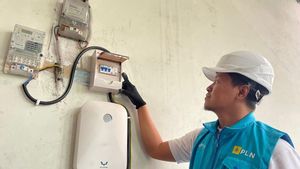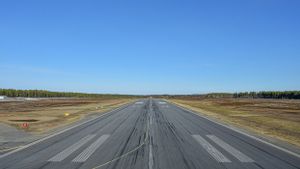JAKARTA - The COVID-19 Sinovac Biotech vaccine has been imported by the Indonesian government, landing at Soekarno-Hatta Airport yesterday evening, Sunday, December 6. President Joko Widodo (Jokowi) said that Sinovac would be Indonesia's new hope. Hope it is true. Because behind that hope, a vaccine developer from China actually registered a bribery scandal.
The bribery scandal took place in 2016, in which Sinovac bribed the Chinese Food and Drug Administration. The bribe was found to be related to the license to develop the SARS vaccine in 2003 and the swine flu in 2009. The bribe made the international community doubt the Sinovac vaccine.
Launching the Washington Post, Monday, December 7, Sinovac has admitted to a bribery case involving his leader, Yin Weidong. In his testimony in 2016, Weidong was unable to refuse a request for a sum of money from a regulatory official and at that time the bribery took place.
Weidong, who is the company's founder and chief executive officer, also admitted to paying more than $ 83,000 in bribes from 2002 to 2011 to a regulatory official, Yin Hongzhang. In return, regulatory officials will seek certification for Sinovac vaccines for SARS, avian flu and swine flu.
In this case Hongzhang was sentenced to a decade in prison in 2017 for accepting bribes from Sinovac and seven other companies. Meanwhile, Weidong was not subject to any fees or penalties. Weidong can instead continue to oversee the development of the COVID-19 vaccine from Sinovac this year.
For Sinovac, this case of bribery was not just one-off. At least 20 government officials and hospital administrators in five provinces have admitted to receiving bribes from Sinovac employees between 2008 and 2016.
The Sinovac leadership was bribing to streamline licensing regulations. Other matters of greater fear, such as the vaccine safety bribery scandal were not proven. However, some medical experts began to doubt the vaccine made by Sinovac and urged the relevant authorities to immediately carry out extra checks on claims made by Sinovac vaccines.
"The fact that the company has a history of bribery casts doubt on the claims of unpublished and peer-reviewed data about its vaccines," said Arthur Caplan, director of the medical ethics division of New York University.
"Even in an outbreak, companies with morally dubious track records should be treated with extreme caution regarding their claims," he added.
This is despite Sinovac's history of bribery has raised concerns among investors. However, the records in the last few months had little effect.
Bribery of China's pharmaceutical industryIn 2017, Sinovac revealed that Yin Weidong was not charged with any offense or inappropriate behavior with the prosecution. In its annual report, Sinovac maintains a strict anti-corruption policy. But the policy may not be completely effective.
In a statement, a Sinovac spokesman said the company had entrusted the legal system to properly handle past bribery cases. He said Yin Weidong's ability to do the job was not affected by past bribery cases.
Corruption in China's pharmaceutical industry has a long history. University of Chicago political scientist Dali Yang said China's transition from decentralized drug deals in the 1990s to a centralized review in the 2000s created opportunities for corruption.
Even so, the corruption that is now being carried out is not as rampant as it used to be. This was due to the strong action of policy makers due to the drug safety bribery scandal.
China is known to have executed the former head of the Chinese Food and Drug Administration, Zheng Xiaoyu in 2007.After that, Chinese President Xi Jinping began launching a broader anti-corruption movement in 2012.
Finally, Sinovac's Yin Weidong gave Yin Hongzhang a cash bribe for nine months in 2016. At that time, Sinovac's leadership requested regulatory approval for the company's vaccines for hepatitis A, SARS, avian flu, and influenza A.
British company investigator Peter Humphrey who has been investigating cases of pharmaceutical corruption in China, said the Sinovac bribery was an extraordinary phenomenon. Despite being known to have committed bribery, Sinovac is still steadfast in the Chinese pharmaceutical industry to this day. For Sinovac, the existence of a bribery case may have little impact. Then, Sinovac continued his business as usual.
The English, Chinese, Japanese, Arabic, and French versions are automatically generated by the AI. So there may still be inaccuracies in translating, please always see Indonesian as our main language. (system supported by DigitalSiber.id)













